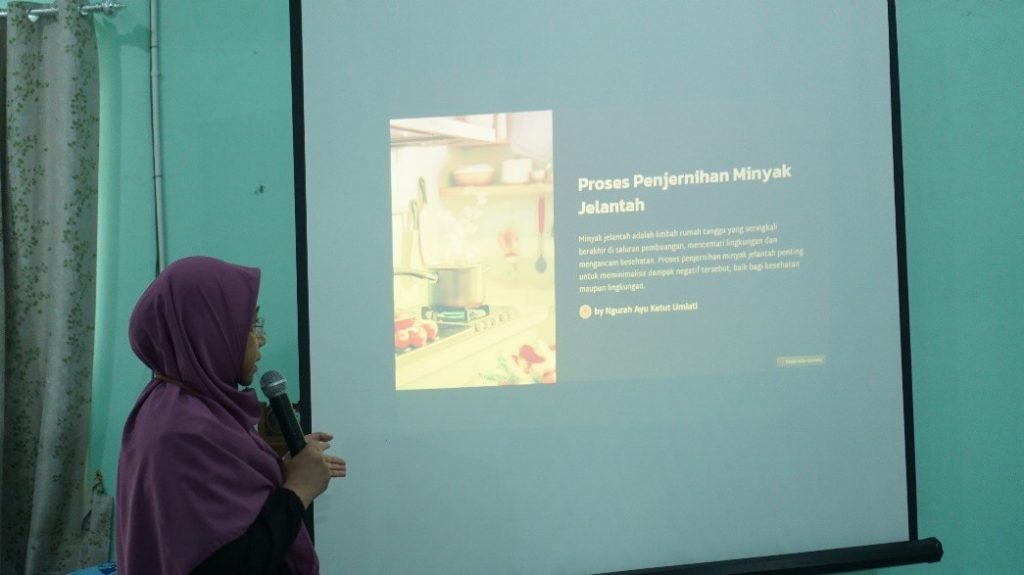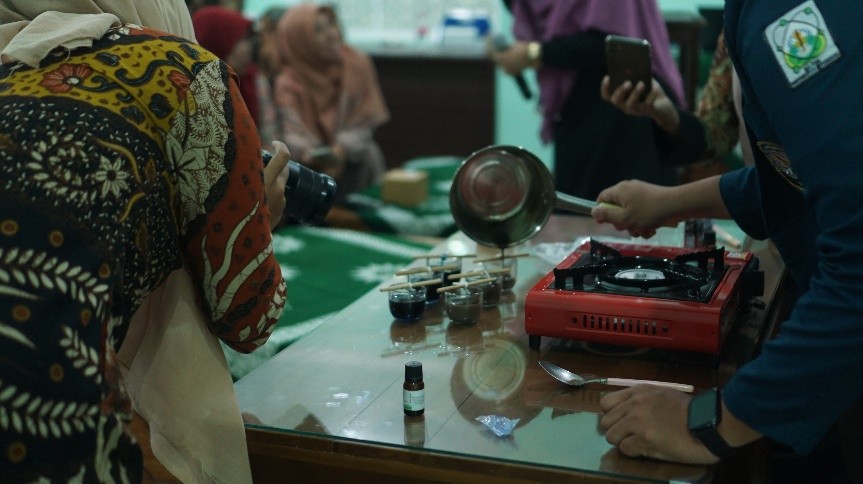Semarang, Indonesia – Used cooking oil, often considered waste and a source of environmental pollution, is now being turned into a potential source of income for local communities. A community service team from Diponegoro University (Undip) trained members of the Aisyiyah Women’s Group in Semarang to convert used oil into high-value aromatherapy candles. The workshop, held on Sunday (Feb 23) in Semarang, was led by Dr. Ngurah Ayu Ketut Umiati, M.Si, along with Prof. Dr. Heri Sutanto, M.Si, Drs. Indras Marhaendrajaya, M.Si, and supported by a team of students.
The aromatherapy candle initiative aims to tackle two challenges at once: reducing environmental pollution and opening opportunities for home-based creative enterprises. “Used cooking oil that is usually discarded can be transformed into an eco-friendly product with high market potential. There is already demand, both in physical stores and on e-commerce platforms,” said Dr. Ngurah Ayu during the training session.


The program began with an explanation of the health and environmental impacts of used cooking oil, followed by a hands-on demonstration of the candle-making process. Participants learned how to filter the oil, mix in fragrances, heat the mixture, and mold it into candles — all using simple tools that can easily be applied at home. The session was met with great enthusiasm, with many participants actively creating their own candles during the workshop.
According to Prof. Dr. Heri Sutanto, this skill has the potential to grow into a sustainable business if managed collectively. The team also provided guidance on marketing strategies, including attractive packaging design and online promotion. “These products have strong appeal in eco-conscious markets, especially since aromatherapy candles are popular for home décor, gifts, and relaxation,” he said.
The event concluded with the handover of basic production equipment to group representatives and a call to form a community business network. The program is expected to serve as a model for community empowerment based on eco-friendly innovation, while also encouraging women’s active participation in the local creative economy.



